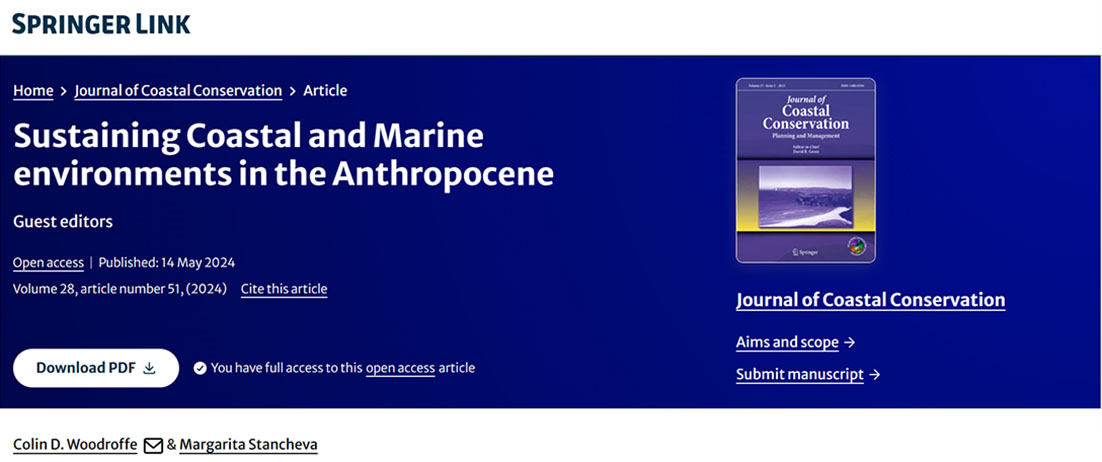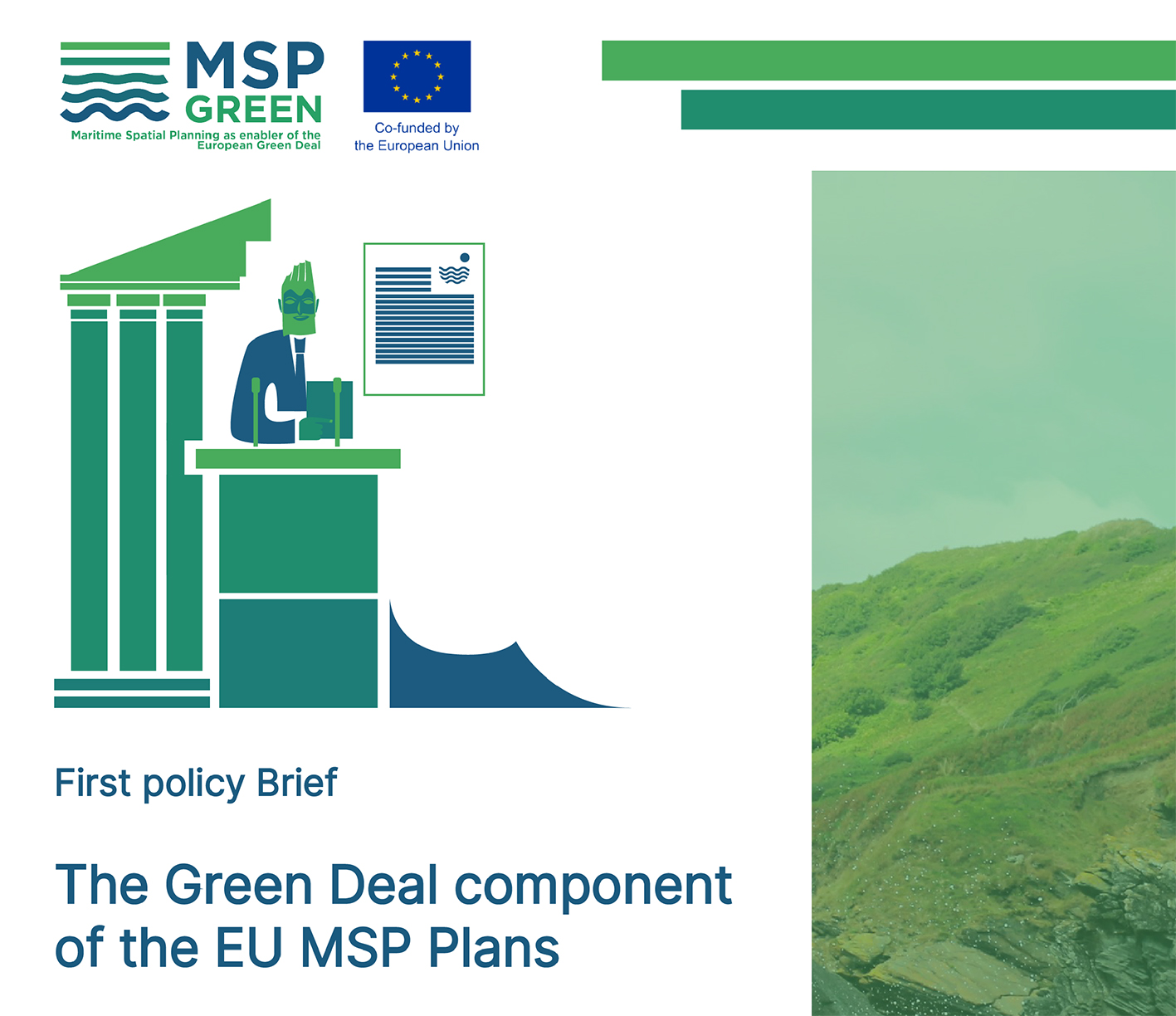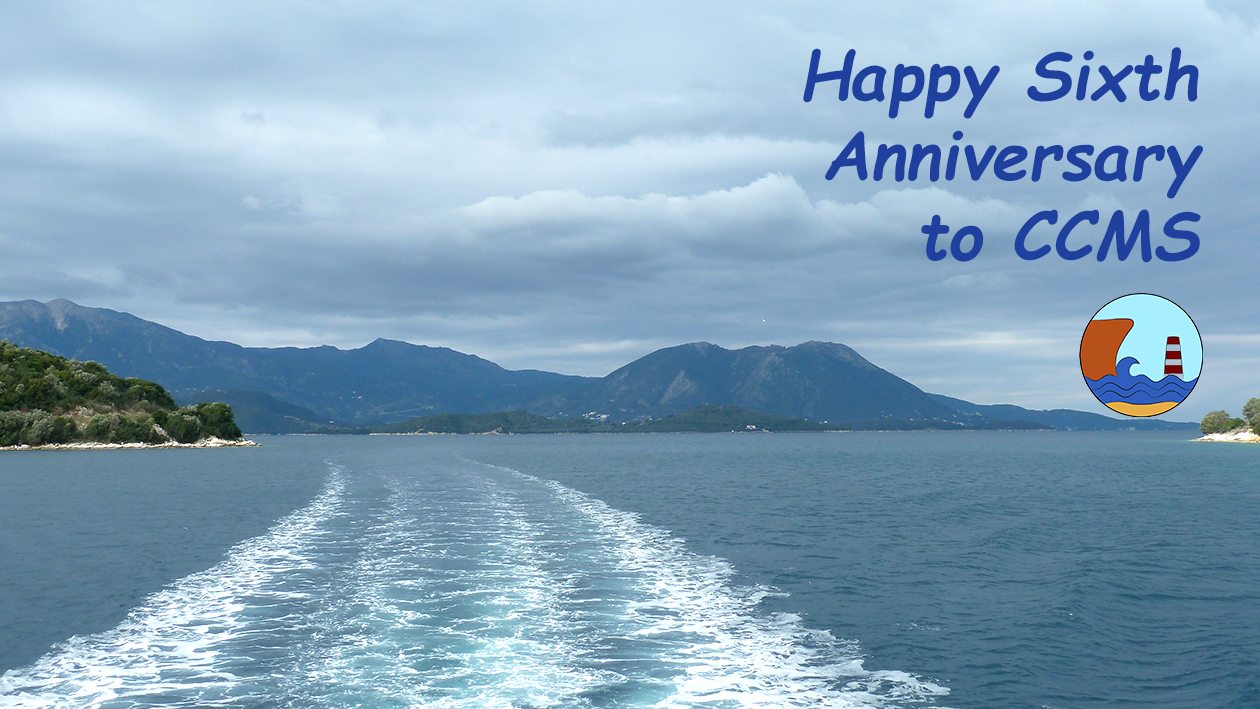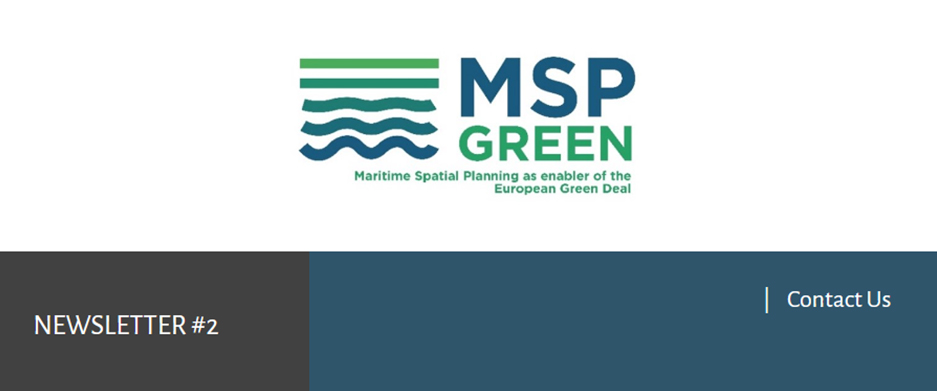News and Events
Brief Communication Paper: Sustaining Coastal and Marine Environments in the Anthropocene

CCMS Director Dr. Margarita Stancheva and CCMS Advisory Committee Member Prof. Colin D. Woodroffe are Guest Editors of the Journal of Coastal Conservation Special Issue that address topics related to sustaining coastal and marine environments in the Anthropocene.
Coastal environments are places of abundant resources and natural beauty. They are highly valued by people and are consequently under pressure with burgeoning populations, also providing substantial cultural and recreational amenities. Human activities are directly impacting coastal and marine ecosystem services through pollution and degradation. Coastal and adjacent marine zones are threatened by natural and anthropogenic activities in the catchments. The low-lying plains associated with deltas and estuaries support ever-increasing populations engaged in agriculture, fishing, aquaculture, and industrial activities. Rapid urbanization is being experienced with many of the world’s megacities on deltas associated with big rivers; deltaic cities are home to more than 150 million people and seem likely to exceed 200 million in the next two decades.
Read more: Brief Communication Paper: Sustaining Coastal and Marine Environments in the Anthropocene
MSP-GREEN Deliverable 2.2 “First Policy Brief” published!!!
The D2.2 offers an overview of the initial project results with highlights specifically designed for policy makers

The objectives of Maritime Spatial Planning (MSP) include contributing to the effective management of maritime activities and to the sustainable use of marine and coastal resources, considering socioeconomic needs. The MSP Directive (2014/89/EU) recognizes that healthy marine ecosystems and their multiple services, if integrated in planning decisions, can deliver substantial benefits regarding food production, recreation and tourism, climate change mitigation and adaptation, shoreline dynamics control, disaster prevention, just transition and fair distribution of benefits of sustainable blue economy.
The European Green Deal (EGD) (COM(2019) 640 final) is a set of policy initiatives aiming to achieve carbon neutrality in Europe by transforming the EU economy into a modern, resource-efficient and competitive one, addressing a wide range of issues, including circular blue economy, biodiversity, zero pollution, clean marine energy, climate change mitigation goals of maritime sectors etc.
Read more: MSP-GREEN Deliverable 2.2 “First Policy Brief” published!!!
The second MSP-GREEN Newsletter is out!
We welcome you to read on the second MSP-GREEN project quarterly Newsletter finalizing the project implementation year of 2023!
Discover latest insights and reflections on the already carried and upcoming MSP-GREEN project events and activities. It is time to take a step further on the flourishing maritime spatial planning path towards greener Europe!
More information: https://mspgreen.eu/
To stay updated regularly, follow the MSP-GREEN social media accounts on LinkedIn, Twitter, Facebook!
HAPPY BIRTHDAY TO US: CCMS TURNS 6!
On 9 of March 2024 the Center for Coastal and Marine Studies (CCMS) celebrates its sixth anniversary! The past six years of success, challenge, and learning has been an incredible experience! We have accomplished so much, but the best is yet to come!

CCMS was born with the fundamental goal of developing and promoting science, research, knowledge transfer, and innovation technologies in the Black Sea and in the World Ocean by bringing together science, environment, expertise, stakeholders and policy making. Our activities comprise a vast range of coastal and marine research (studies and surveys in the field of modern coastal and marine processes), as well as support to the implementation of the EU coastal and maritime Strategies and Directives (MSP, ICZM, Blue and Circular Economy, European Green Deal, EU Mission: Restore our Ocean and Waters, etc.), by developing scientific basis and providing knowledge and expertise, project participation, networking and consultancy.
CCMS is directly advised by an Advisory Committee (AC), which involves seventeen distinguished and outstanding scientists and experts from different institutes, universities and organizations all around the globe (Australia, Belgium, Greece, Columbia, Estonia, Germany, Italy, Poland, Romania, Spain, Turkey, United Kingdom, USA and Bulgaria). For more information on the AC members explore the AC section on our webpage: http://www.ccms.bg/en/about-ccms/advisory-committee.

